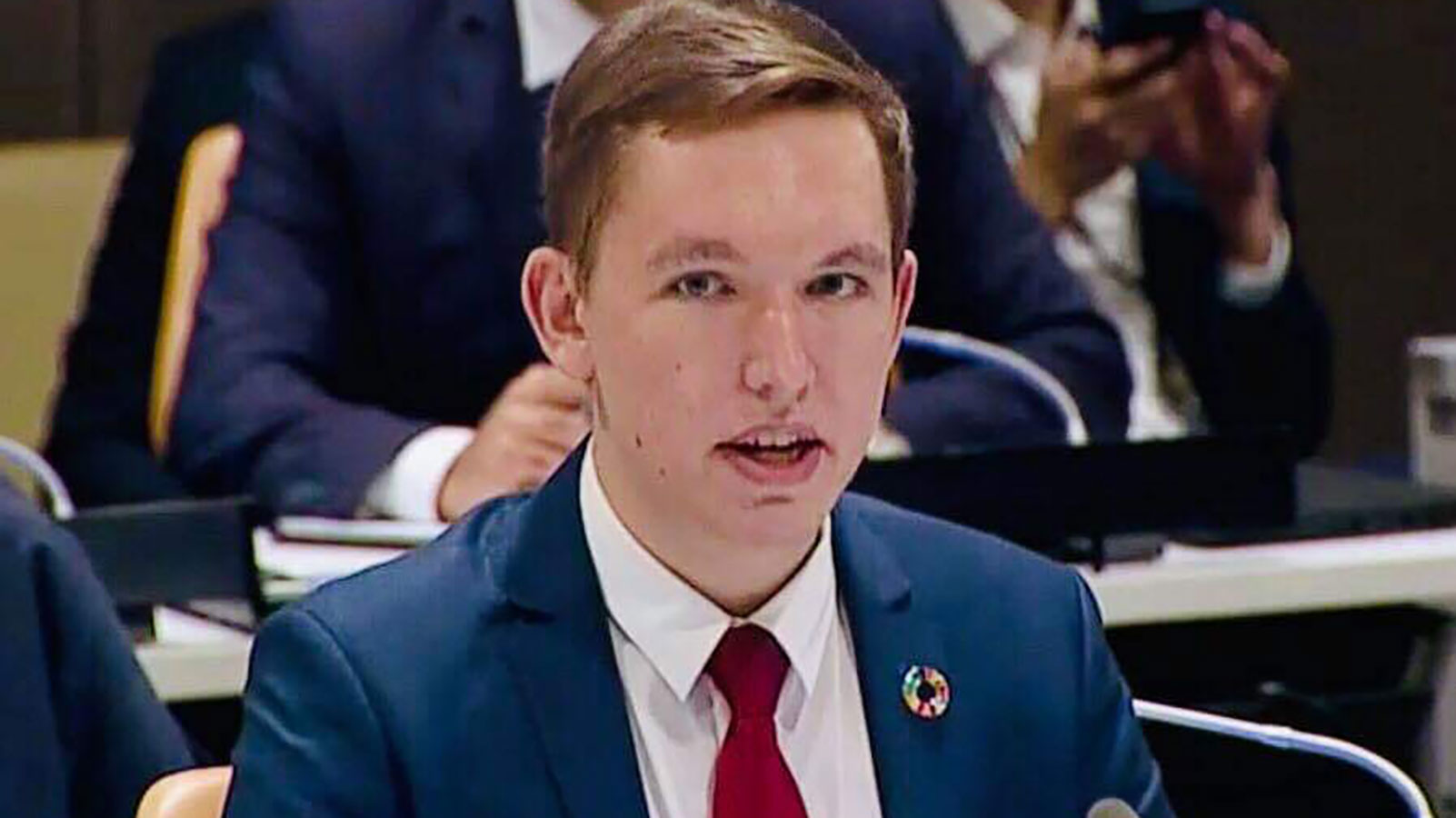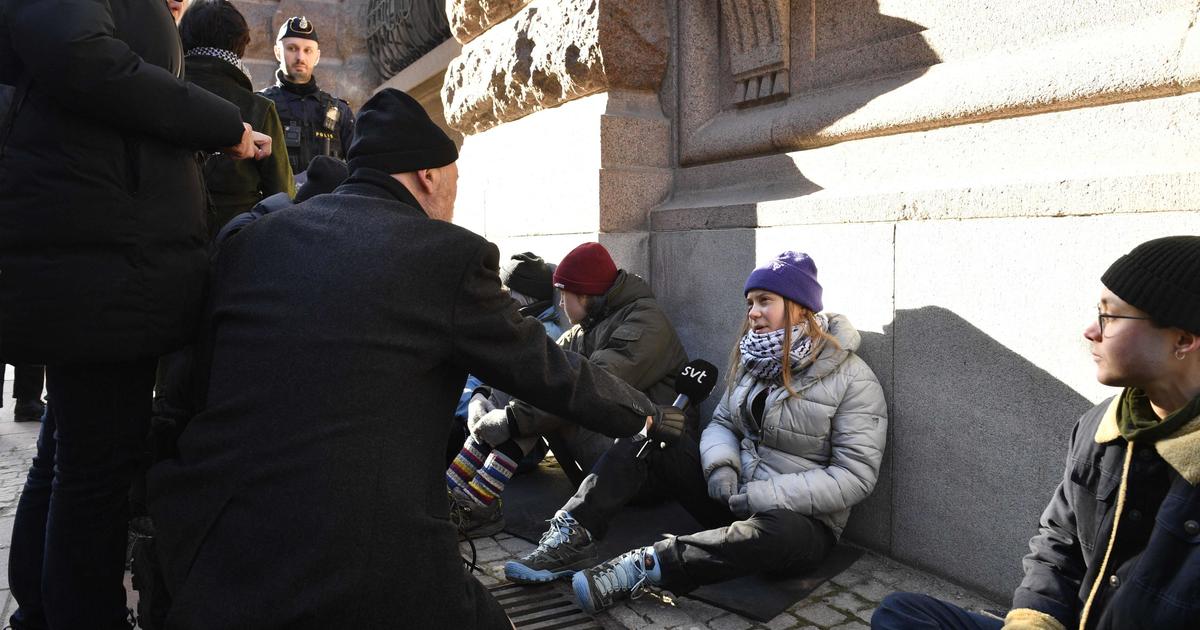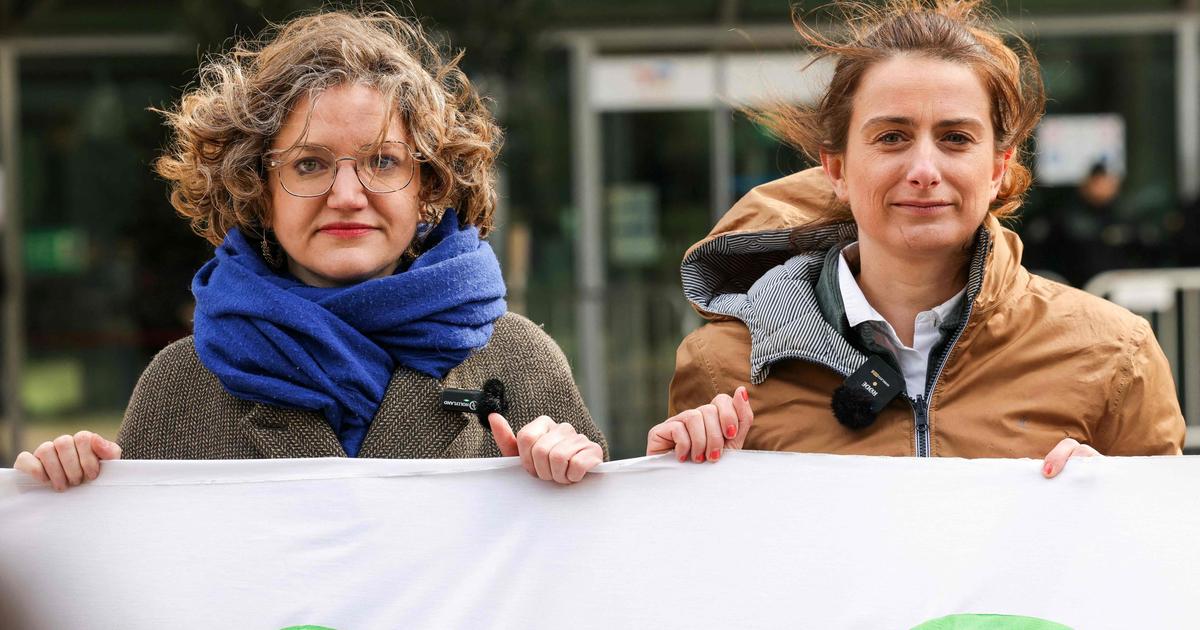Greta Thunberg says change will not come from COP26 1:00
(CNN) -
Vanessa Nakate was 21 when deadly floods covered vast swathes of East Africa in 2018. She didn't consider herself a climate activist at the time, but shortly after that disaster, she, her younger siblings and cousins made posters and Climate protests began at his home.
city of Kampala, capital of Uganda.
As intensifying storms, devastating wildfires, and relentless drought ravaged Africa and around the world, Nakate publicly called on governments for not doing enough to make Earth habitable for future generations.
She says young people understand the urgency of divorcing fossil fuels much better than previous generations.
"I want to see leaders, governments and corporations stand up for the people," Nakate told CNN.
"And that means ending fossil fuel projects. As I always say: we can't eat coal, we can't drink oil, and we can't breathe so-called 'natural' gas."
Climate activist Vanesa Nekate at her home in Kampala, Uganda.
Nakate's generation is coming of age in a world that is warming much faster than scientists had predicted, and they see the climate catastrophe ahead with clear eyes.
They are challenging power structures, elbowing their way into conversations to have a say in their own future.
They are channeling their eager energy into climate rallies and protests, skipping school to sit outside Parliament buildings and UN headquarters for long hours, and exhorting governments in public forums, such as the COP26 climate summit, for the continuous use of fossil fuels.
advertising
They have long felt ignored by the previous generation of leaders.
Young activists who spoke to CNN said they did not believe it would take countries that long to commit to solving the climate crisis.
Young activists against climate change
Vladislav Kaim, a 26-year-old Moldovan activist, began advocating for climate action in 2014 and in 2020 he joined the UN Secretary-General's Youth Advisory Group on Climate Change.
Now he wears the suit and walks among powerful decision makers and policy influencers on the international stage, although he still feels that the youth need to be recognized as an equal partner.
"If we do not implement this principle of co-equality of experience with youth, I fear that there will not be meaningful intergenerational dialogue and significant change in how power structures operate in space," Kaim told CNN.
"Finding these advances in working with power structures and also challenging them at the same time is walking a tightrope," he added.
"When I am interacting in these corridors of power, I am pressing particularly on the points that are important to my region, at the same time that I find allies from other regions, vulnerable communities, who share the same cause."
See how a group of activists replicated a scene from "The Squid Game" to protest at COP26
Vladislav Kaim speaks at a UN General Assembly in 2019.
Despite feeling on the sidelines, young people are finding these advances.
They have been suing governments, filing complaints with the UN, pushing for climate education, going on hunger strikes, installing green infrastructure, testifying in front of government bodies, and even winning elections, all in the name of the climate crisis.
"If young activists alone are capable of transforming communities, it shows that governments can actually transform their countries or the world," said Nakate, now 24.
"But what they lack is the political will to do it."
Climate activists say they will go on hunger strike until politicians take action
Note: Observed global surface temperatures relative to an 1850-1900 baseline. Source: Intergovernmental Panel on Climate Change, Sixth Assessment Report, Working Group 1 Chart: John Keefe, CNN.
Nakate, who is black, was launched onto the world stage in January 2020 when the Associated Press pulled her from a photo for which she posed alongside Greta Thunberg and other young white activists at the World Economic Forum in Davos.
Sally Buzbee, the AP's executive editor at the time, later apologized for the mistake.
"We are sorry to have posted a photo this morning where we took Ugandan climate activist Vanessa Nakate, the only black person in the photo," Buzbee said.
"As a news organization, we care deeply about accurately representing the world we cover."
But it sparked a broader conversation about inequalities within the climate movement and the role youth of color play.
"They didn't just delete a photo," Nakate tweeted in response.
"They erased a continent."
The moment was a turning point for her activism, but Nakate has been doing work in her home country that shows that she is more than just the activist who was cropped in a photo.
Her book "The Bigger Picture" describes her involvement in the protests in Uganda, her networking with young activists from around the world, and the installation of solar panels and energy-efficient cooking stoves for schools in rural Ugandan communities.
Climate activist Vanessa Nakate, Luisa Neubauer, Greta Thunberg, Isabelle Axelsson and Loukina Tille, left to right, in Davos, Switzerland, in 2020.
The moment was a turning point for her activism, but Nakate has been doing work in her home country that shows that she is more than just the activist who was cropped in a photo.
Her book "The Bigger Picture" describes her involvement in the protests in Uganda, her networking with young activists from around the world, and the installation of solar panels and energy-efficient cooking stoves for schools in rural Ugandan communities.
He says he realized that if government leaders were not going to take concrete steps to move away from fossil fuels and stop rampant deforestation, he needed to take a more holistic approach to addressing the multiple layers of crises Uganda has faced. : unsafe learning conditions, energy poverty and gender inequality.
"If young people can undertake these projects and make them happen and transform people's lives, then what about these governments that have all the resources, all the money and all the infrastructure or connections that they need to make these things happen? "Nakate said.
"They see me simply as a child, not as a worried young man"
That's what Aji Piper, who is now 21, says she has been asking since she was 12.
In 2015, Piper and 20 other youth climate activists sued the United States government in Juliana v.
United States, in which the plaintiffs argued that the government's role in causing and perpetuating the climate crisis violates the constitutional rights of young people to life, liberty and property.
They recently asked a federal judge in Oregon to hear an amended version of the lawsuit after the US Court of Appeals for the Ninth Circuit dismissed the case in 2020.
Aji Piper, one of the plaintiffs in Juliana's climate lawsuit against the United States, speaks at the first House Select Committee on Climate Crisis hearing in 2019.
Piper said the lawsuit has been stressful for him.
Convincing adults in power, he said, was always the most challenging aspect.
"They really underestimate your intelligence," Piper told CNN.
"I can't describe how many times the response I got from people was like, 'Oh poor boy who works on the agenda of the adults around him.'
"That was the hardest thing to overcome, that adults really looked at me as a child, speaking adult words for them, instead of seeing me as a young man worried about my future, understanding the problem and trying to convince them to see my point. of sight, "he added.
The lawsuit inspired other youth-led climate legal efforts around the world.
In 2019, 15 young activists, including Gretha Thunberg, filed a complaint with the UN that inaction on climate change is a violation of children's rights.
In October, the UN Committee on the Rights of the Child said it could not immediately comment on the case.
The conclusions of the second day of COP26: a promise on methane, China speaks out and vulnerable countries ask for help
Litokne Kabua speaks as he and 14 other children present an official human rights complaint about the climate crisis, addressed to five of the world's major economic powers, to the United Nations Committee on the Rights of the Child.
Litokne Kabua, an 18-year-old climate activist from the Republic of the Marshall Islands, was among 15 who filed the complaint with the UN.
Its islands are plagued by the legacy of military pollution and environmental injustice.
In 2019, researchers found that the Marshall Islands were more radioactive than Chernobyl and Fukushima.
Islanders have faced the health impacts of nuclear waste, cornered in a 3.1 million cubic foot dome, now threatened by rising sea levels.
However, the Marshall Islands continue to pay a high cost for other countries not dumping fossil fuels.
"I think we younger people understand that we will face much more serious challenges than we see now," Kabua told CNN, "however, some members of the older generation still seem to disapprove of these kinds of claims."
Mitzi Jonelle Tan, climate justice organizer for Youth Advocates for Climate Action (YACAP) Philippines, has a front row seat to the climate crisis.
He grew up watching severe storms, floods and landslides hit his home country, particularly low-income communities along the coast.
In 2013, Typhoon Haiyan struck the Philippines, killing more than 6,000 people.
Mitzi Jonelle Tan, a Filipino climate activist, speaks during a protest outside the Standard Chartered bank office in the Makati financial district in Manila, Philippines.
"Our anxiety, especially for people in the Global South, stems from climate trauma," Tan told CNN.
"We know that our countries will be the most impacted and they already are and we already know what it looks like. We already know the fear that it brings us, and we know that it will get worse if things continue as usual."
The struggle of activists in developing countries
In developing countries like the Philippines and Uganda, environmental injustice adds another layer to the challenge of stopping the climate crisis.
As climate change depletes natural resources, reports have found that the Philippines, as well as countries in Africa and South America, are among the deadliest countries for people trying to defend their environment.
Young climate activists have been protesting in Glasgow this week at the COP26 conference.
The fight to stop fossil fuel pollution is a personal one for Tan, who battles lung disease.
But due to the lack of education about climate change in the Philippines, people are mostly unaware of how the climate is related to other issues such as public health.
To address this gap, Tan and his fellow YACAP activists have delivered climate lesson plans to vulnerable communities and are in talks with the Department of Education to institutionalize climate learning in the curriculum.
"There is definitely a knowledge gap, because even just looking at the available climate science, everything is in English," Tan told CNN.
"That language barrier is a huge thing. It's these little things that we think are not that important, but it's actually really important, to have a language that people understand about the climate crisis, so that people have knowledge so that can be turned into action. "
The youth movement against the climate crisis
As the climate crisis intensifies, so does the youth movement.
Kicking off COP26 this week in Glasgow, Nakate and Tan published an open letter urgently urging world leaders to "tackle the climate emergency."
The letter, which includes a five-point plan, has since been signed by more than 1.5 million people around the world, another example of youth leading the way.
"Climate change is more than just the weather, it is more than a statistic, it is about people, and people are being affected right now," Nakate said.
"Youth activists know that we can transform this world. It's time to look at climate change beyond what you've been seeing, it's time to look at the bigger picture."
climate change activists




/cloudfront-eu-central-1.images.arcpublishing.com/prisa/O4ILTRQ36ZGKPIXEBV4IPDGXZU.jpg)




